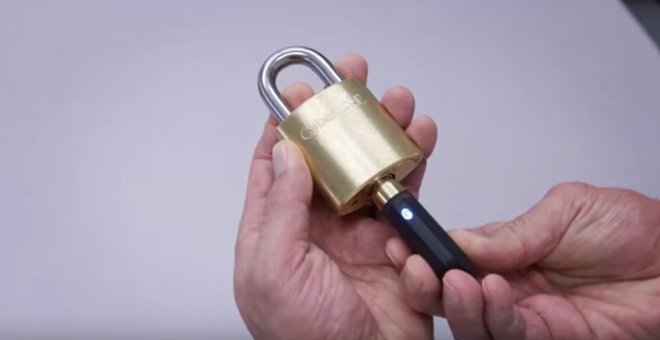
Access control systems have undergone a significant transformation with the advent of smart lock technology. Smart locks have revolutionized traditional methods of securing premises and have become an integral part of modern access control systems. By combining advanced technology, convenience, and enhanced security, smart locks offer a host of benefits that redefine how we control and manage access to our homes, offices, and other facilities. In this article, we will explore the key ways in which smart locks have revolutionized access control systems, paving the way for a more secure and efficient future.
- Enhanced Convenience and Flexibility : One of the most significant advantages of smart locks is the convenience and flexibility they provide in accessing and managing entry to a property. With smart locks, traditional physical keys are replaced by digital credentials such as mobile apps, key cards, or biometric data. This eliminates the need for carrying and managing multiple keys, reducing the risk of lost or stolen keys. Users can easily grant or revoke access to individuals remotely, enabling temporary access for guests, contractors, or deliveries with just a few taps on their smartphone.
- Increased Security and Control: Smart locks offer advanced security features that greatly enhance access control systems. With traditional locks, there is always a risk of unauthorized key duplication or lock picking. Smart locks address these concerns by incorporating robust encryption algorithms and authentication protocols. Biometric authentication methods, such as fingerprint or facial recognition, provide an additional layer of security. Furthermore, smart locks can send real-time notifications to users’ smartphones, alerting them to any unauthorized access attempts or suspicious activity. This allows for immediate action to be taken, such as notifying authorities or activating additional security measures.
- Seamless Integration with Home Automation: Smart locks seamlessly integrate with home automation systems, creating a cohesive and interconnected ecosystem. They can be integrated with other smart devices such as cameras, doorbells, and sensors, allowing users to monitor and control access from a centralized platform. For example, users can receive a live video feed from a doorbell camera when someone approaches their door and grant access remotely if needed. Integration with voice assistants enables hands-free control, allowing users to lock or unlock doors using voice commands. The ability to automate tasks, such as automatically locking doors when everyone leaves the premises, adds an extra layer of convenience and security.
- Audit Trail and Activity Monitoring: Smart locks provide a detailed audit trail and activity monitoring, offering valuable insights into who accessed a property and when. This feature is particularly useful for businesses, property managers, and organizations that require strict access control and accountability. Administrators can review logs and activity reports to track employee or visitor movements, resolve disputes, and ensure compliance with security protocols. The ability to generate comprehensive reports simplifies record-keeping and simplifies the management of access control systems.
- Remote Management and Monitoring: With smart locks, access control systems can be managed and monitored remotely, regardless of physical location. Users can lock or unlock doors, grant or revoke access, and monitor activity from anywhere using a mobile app or web interface. This eliminates the need for on-site presence or the involvement of third-party security personnel for routine access management tasks. In case of emergencies or unforeseen circumstances, authorized individuals can be granted temporary access remotely, ensuring seamless operations and enhanced security.
Smart locks not only provide convenience and flexibility but also offer peace of mind knowing that your property is secure. They have revolutionized access control systems by eliminating the vulnerabilities associated with physical keys, such as loss, theft, or unauthorized duplication. With digital credentials and biometric authentication, the risk of unauthorized entry is significantly reduced.
The integration of smart locks with home automation systems creates a connected environment where users can control various aspects of their homes with a single interface. From locking or unlocking doors to adjusting temperature, lighting, and security cameras, smart locks offer a centralized control hub for homeowners.
The ability to monitor access activity through detailed audit trails is invaluable for businesses and organizations that require strict control and accountability. Administrators can easily track who accessed specific areas and when, enabling them to address any security concerns or investigate incidents effectively.
Remote management and monitoring capabilities provide a high level of convenience and efficiency. Whether you’re at work, on vacation, or simply away from your property, you can manage access, grant temporary permissions, and receive real-time notifications about any suspicious activity or attempted breaches.
Moreover, smart locks can be integrated with other security systems, such as surveillance cameras and alarms, creating a comprehensive security solution. When a smart lock detects an unauthorized attempt to gain access, it can trigger an alarm or notify the homeowner and security personnel, allowing for immediate action.
As with any technology, there are considerations to keep in mind when implementing smart locks. Ensuring proper cybersecurity measures, regular firmware updates, and strong encryption protocols are essential to prevent hacking or unauthorized access attempts. Additionally, power backup options should be in place to ensure continuous operation in case of power outages.
Smart locks have revolutionized access control systems by combining convenience, enhanced security, and advanced technology. With features like remote management, integration with home automation, audit trail capabilities, and increased control, they provide a superior alternative to traditional locks. As smart lock technology continues to evolve, we can anticipate even more innovative features that will further enhance the security and convenience of access control systems.
